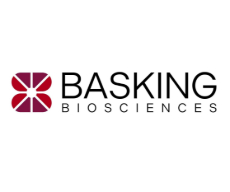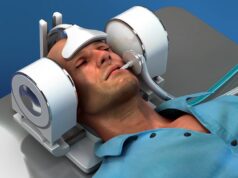 Basking Biosciences has announced the first patients have been dosed in part B of its Phase 2 RAISE trial of BB-031, an investigational ribonucleic acid (RNA) aptamer targeting von Willebrand factor (vWF), which is a key mediator of clot formation and stabilisation. By promoting clot dissolution and restoring blood flow to the brain, BB-031—along with its complementary, rapid-acting reversal agent, BB-025—has the potential to significantly expand access to timely, effective treatment for acute ischaemic stroke patients, according to a company press release.
Basking Biosciences has announced the first patients have been dosed in part B of its Phase 2 RAISE trial of BB-031, an investigational ribonucleic acid (RNA) aptamer targeting von Willebrand factor (vWF), which is a key mediator of clot formation and stabilisation. By promoting clot dissolution and restoring blood flow to the brain, BB-031—along with its complementary, rapid-acting reversal agent, BB-025—has the potential to significantly expand access to timely, effective treatment for acute ischaemic stroke patients, according to a company press release.
Progression into part B of RAISE, supported by encouraging early results from part A and the recommendation of the data safety monitoring committee (DSMC), has also triggered the release of the second US$27.5 million tranche of the company’s US$55 million financing. First announced in January 2024, the financing is led by ARCH Venture Partners, with participation from Insight Partners, Platanus, Solas BioVentures, RTW, Longview Ventures and others. The new funds will support the execution of part B of the Phase 2 RAISE trial as well as a planned Phase 1 study of BB-025.
In addition, Basking recently announced the appointment of Julia Owens as chief executive officer (CEO). Owens brings extensive leadership experience in biopharmaceutical company building and drug development, having served as CEO of Ananke Therapeutics, and founder and CEO of Millendo Therapeutics. She has held board roles at both emerging and publicly traded companies, and currently serves on the board of Biotechnology Innovation Organization (BIO) and other organisations.
Basking’s release states that, as CEO, Owens will focus on steering the company as it enters a new stage of growth. Richard Shea, who has served as CEO since the company’s founding in 2019, will transition to president and chief operating officer, ensuring leadership continuity and “a sustained focus on Basking’s track record of operational excellence as the company advances into later-stage clinical development”, the release adds.
“Basking’s innovative science, its unparalleled dedication to the stroke community, and the calibre of its existing leadership, drove my interest in joining the team,” said Owens. “As I deepen my understanding of the company and its science, I’m energised to partner with the leadership team to build on encouraging Phase 2a results and realise the potential of BB-031 to reshape stroke care.”
“Despite progress in care, most patients with acute ischaemic stroke remain ineligible for currently approved therapies, underscoring the need for new approaches,” added Shahid Nimjee (Ohio State University Wexner Medical Center, Columbus, USA), co-founder and chief medical officer of Basking. “Our commitment is to change that by advancing BB-031 through Phase 2b and beyond, to deliver a therapy that expands access and addresses this critical gap in stroke care.”
RAISE is a two-part, multicentre, double-blind, randomised, placebo-controlled Phase 2 clinical trial evaluating BB-031 in patients with acute ischaemic stroke who present within 24 hours of symptom onset.
Part A enrolled 48 patients across three ascending-dose cohorts (0.5mg/kg, 1.5mg/kg and 4mg/kg vs placebo), with results informing dose selection for part B. Originally planned for 36 patients, enrolment was increased to 48 to double the size of the top-dose cohort based on the encouraging safety profile observed, providing greater confidence in dose selection for part B, Basking claims.
Part B, originally designed to enrol approximately 120 patients, has been expanded to 180 participants. Basking states that this increase reflects confidence in BB-031’s profile shown in part A and is intended to enable evaluation of potential treatment effects on the National Institutes of Health stroke scale (NIHSS), a measure correlated with meaningful functional outcomes. Part B will evaluate BB-031 at doses of 2mg/kg and 6mg/kg in a stepwise design, alongside a placebo group.
The primary objectives of the trial are to assess safety, tolerability and pharmacokinetics/pharmacodynamics, with secondary endpoints evaluating vessel recanalisation, infarct volume, NIHSS score change, and functional outcomes at 90 days. The trial is being conducted at sites across North America and Australia, with anticipated site activation in the UK.










